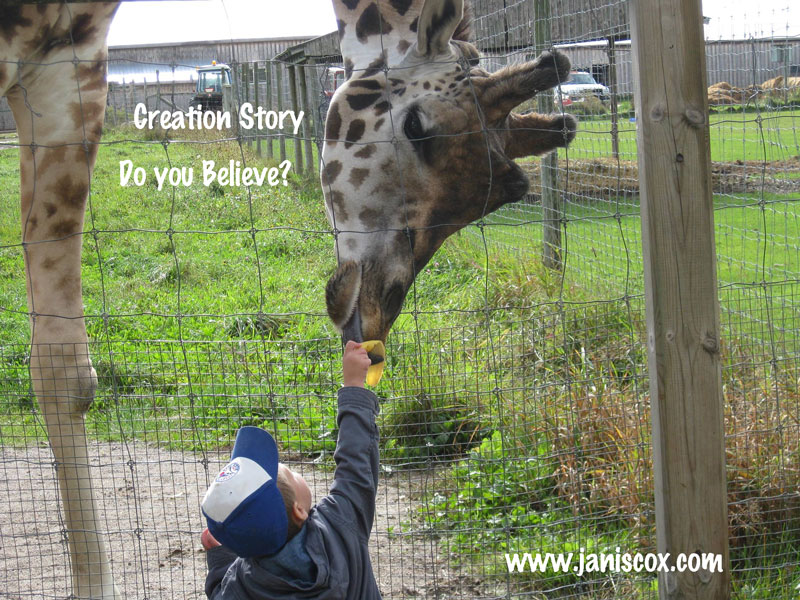In examining the Bahá’í perspective on the concepts of creation and eternity, one might playfully ponder: Do you believe in the creative majesty of a singular originating event, or do you gravitate toward the notion of an eternal existence that transcends time altogether? This inquiry not only invites personal introspection but also challenges the very foundations of how we perceive reality and our place within it. The Bahá’í teachings offer insightful frameworks that elegantly bounce between these dichotomous concepts, illuminating a path toward deeper understanding and spiritual enlightenment.
The Bahá’í Faith, founded by Bahá’u’lláh in the 19th century, profoundly emphasizes the oneness of humanity and the harmonious relationship between science and religion. This intricate tapestry of beliefs provides fertile ground for exploring the duality of creation and eternity. One must first consider the Bahá’í assertion that creation is an ongoing process, not a singular event confined to the annals of history. This perspective contrasts sharply with traditional creationist views, which often posit a definitive moment of origin. In this light, the act of creation is neither static nor concluded; rather, it is a dynamic force permeating all existence, continuously unfolding in layers of complexity and beauty.
In Bahá’í thought, the material world is seen as the manifestation of God’s attributes, a transient stage that serves as a reflective surface for the divine essence. The world of creation is believed to be a real though imperfect expression of the Infinite. The universe’s ongoing evolution, from the formation of stellar bodies to the emergence of life in its myriad forms, suggests that creation serves as a continuous dialogue between the Creator and the created. Thus, when asked, “Do you believe in creation?” the faithful response encapsulates both the respect for divine initiation and the recognition of its ongoing nature.
Conversely, the question of eternity invites contemplation of the eternal soul’s relation to the temporal world. According to Bahá’í beliefs, the human soul possesses an intrinsic affinity with the eternal; it transcends the physical limitations of the body and the temporal confines of earthly existence. This relationship raises further questions: What does it mean to embody eternity in a world so punctuated by beginnings and endings? How do fleeting moments of experience connect with an everlasting essence? The Bahá’í teachings address the soul’s journey through successive stages, emphasizing that each earthly existence serves to refine and elevate the spirit toward its ultimate reunion with the divine.
The Bahá’í writings elucidate the interplay between creation and eternity through the metaphor of a seed. Just as a seed contains within it the potential for a vast tree, so too does the human soul encompass the latent capacity for divine attributes. This metaphor challenges believers to recognize their growth trajectory as part of an eternal progression. The soul’s development over time parallels the natural world’s patterns—each moment, every experience, is not an end but a stepping stone toward greater enlightenment and connection with the divine consciousness.
Engaging with both creation and eternity allows for a holistic appreciation of existence, rejecting the simplistic binary choices often posited in philosophical discourses. Instead, Bahá’í teachings encourage a broader inquiry into how these concepts intertwine to inform our ethical actions and spiritual aspirations. The essence of every created thing reflects a divine purpose, urging humanity to respond with love, compassion, and a commitment to service. Every act of kindness, every pursuit of knowledge, and every endeavor to promote justice can be seen as an expression of that divine resonance amidst the temporal.
Moreover, the Bahá’í belief in the interconnectedness of all life serves as a crucial reminder that the conversation about creation and eternity is not solitary. Societal progress occurs when individuals acknowledge their collective responsibility in fostering a world rooted in unity and peace. In a time of increasing individualism and division, the teachings of Bahá’u’lláh remind us that the threads of creation connect us all—past, present, and future. Thus, the playful question posed at the outset evolves into a profound call for reflection on how each of us contributes to the collective narrative of existence.
As we traverse the complexities of creation and eternity, it is also essential to embrace the role of inquiry and unlearning. The Bahá’í Faith encourages believers to engage with ideas critically and openly, fostering an environment where questions lead to greater understanding, not dogmatic conclusions. The divine urges humanity to ponder the mysteries of life and existence continually, suggesting that faith is not the absence of doubt but an active pursuit of truth.
In conclusion, the Bahá’í perspective on creation and eternity invites individuals to embrace the interplay of these concepts within their lives. Understanding Creation as an ongoing process implies that we are participants in the divine narrative, shaping our destinies while collectively influencing the future. Conversely, recognizing our eternal nature prompts us to transcend the mundane, striving for the divine qualities that enhance our lives and the world around us. Ultimately, through contemplation and commitment to the principles of unity, love, and justice, we can cultivate a deeper appreciation for the eternal essence that weaves through creation. So, as the playful question resonates—do you believe in creation or eternity?—one might find that the answer lies not in an either/or dichotomy, but rather in a harmonious synthesis of both, leading to a profound understanding of our purpose in this grand tapestry of existence.
